For the 60th anniversary of the well-known Abaza poetess Larisa Shebzukhova, the WAC web information portal prepared an essay about the main stages of her life and career, important points of her formation and development, the main motives of her works.
Lyudmila Aysanova
April 6 marks the 60th anniversary of the famous Abaza poetess, a member of the Writers' Union of Russia, a national poet of the Karachay-Cherkess Republic, a member of the Association of Writers of Abkhazia Larisa Shebzukhova. Her poetic gift, like an imperishable fire, kindled by God, was supported by close people, and then carried through all her life with all her ordeals. Larisa Shebzukhova became a real poet-singer of her people, it’s “tribune”. In this, she was helped by the inexhaustible energy, courage and perseverance of character, the desire to penetrate the souls of people with the word, to lead them to the comprehension of the main values of life.
Rich heritage of fathers and grandfathers
Larisa Shebzukhova was born in the village of Kubin (Kubina lokt - ed.), in one of the most picturesque corners - the “Chibish” area, on the bank of the river of the same name, which the poetess will later more than once sing as a symbol of her inspiration.
I drowned a lot of tears in you,
I gave you a lot of pain
And that's why I always loved you -
That you are tireless in your struggle.
This is how Larisa will begin one of the poems, identifying the small river flowing into the big Kuban, with her vision of the world in which firmness and perseverance are rewarded, give the key to success. She turns to this image again and again:
I squirt in you again like a girl.
I want you to bare the soul:
Despite you are quite an ugly little river
Chibish! I learned to live with you.
Both Larisa’s father and mother were teachers. Father - Kurmanbi Khutsovich Balov (or Bala - ed.), now deceased, a veteran of World War II, one of the first Abaza pilots, known in the village and beyond.
“Balov's family traditions confirm our Abkhaz origin, - says Larisa Shebzukhova herself. - Bala is one of the ancient Abkhaz-Abaza surnames. It is mentioned in the Abkhaz folklore, in particular, in the works of Iua Kogonia in the image of the heroine Madina, the daughter of Balou.”
The fate of Kurmanbi Balov was very interesting. First, he graduated from the pedagogical school in Cherkessk, and then decided to fulfill an old dream - to fly, he managed to enter the flight school of the city of Rustavi of the Georgian SSR and became a test pilot. In 1938 he was drafted into the army, from where he went to war against the German fascist invaders.
Larisa's grandmother, Mamyra Balova, recalled that, going into the army, her son took with him only three corn tortillas from the house. He kept for many years in his shirt pocket a tiny, dried piece of Abaza breadas a symbol of the hearth.
After the war, Kurmanbi Balov served in Austria until 1947. With numerous military awards in the rank of lieutenant, he safely returned home, entered the teacher's institute, and, after graduating from it, began to teach children in Kubin high school. His teaching experience was more than 40 years. Many generations of pupils remember the geography teacher Kurmanbi Khutsovich with warmth in their hearts.
With such a diversified father, Larisa Shebzukhova could not but absorb from him the thirst for knowledge of the world, the desire for perfection. Kurmanbi Khutsovich’s great fatherly love for his only daughter, their close intercourse allowed Larissa, before her peers, to feel love for the world around her, to understand the secrets of life.
Memories of campaigns with the father for agricultural activities, observations of the nature of the region that is dear to the heart will later develop into the poetic lines of the poem “Inheritance”:
I learned the mystery of birth,
And the key gave rise to the stream.
I remember the days of the Great Find,
When my father gave a spring ...
The mother of Larisa Shebzukhova, Dina Bilyalevna (now deceased), a Circassian by nationality and the daughter of a famous statesman Bilyal Temirov, was a native of the village of Khumara. My grandfather on the mother’s side was a highly educated person who participated in the creation of the Circassian alphabet, says Larisa. Unfortunately, his fate ended tragically: being the commander of a partisan detachment during the Second World War, during the execution of a special operation together with his son, they became victims of a denunciation and were brutally tortured by the Nazis. In memory of the heroes named one of the streets in the village of Zelenchukskaya.
Larisa Shebzukhova recalls from the grandmother’s stories that when her parents met, mother — a young teacher of Russian language and literature — reluctantly went to communicate with her father. But the purposeful Kurmanbi was able to win over the future mother-in-law — that same grandmother Lydia from the mother’s side, that very soon the young people were married and began to build a family in the village of Kubin. They had three children: the sons Ali and Ali-Murza, and a daughter, the future poet Larisa.
“In addition to my parents, elder brother Ali played a huge role in my early development and education. He was the first to instill in me a love of reading,” recalls Larisa.
Ali (now deceased) was affectionately tenderly on his younger sister, often reading aloud Marshak's poems, the works of Mark Twain, Charles Dickens. Fascinated by the sacrament of images from the works of great masters, little Larisa began to put together her own rhymes. In one of the trips with her father and uncle on the haymaking, she issued her first creation:
In the middle of the meadows arose
Blue mirror spring.
Once - push, another push -
To people jumps the spring!
Subsequently, Larisa also produced other children's poems: about a sprawling willow growing in the yard of the house, about pets ...
“My first pedagogical poem”
At school, Larisa studied diligently, was interested at the same time in many subjects. Mother, being a philologist, actively supported her daughter’s passion for literature and poetry, selected books to help her. And when they began to study ancient culture at school, Larisa's imagination was taken over by the architecture of Greece — so much so that after the eighth grade, the girl entered the construction college, deciding to become an architect, but returned to school again for family reasons.
After school, Larisa became a student of the Pyatigorsk Institute of Foreign Languages, where she studied with pleasure, began to seriously study English literature, read it in the original.
Once during the summer holidays, she was employed as a teacher by the tutor at the “Eagle Rocks” recreation center in the city of Lermontov (Stavropol region of the Russian Federation - ed.). Larisa had to keep a teacher diary every day for a month. What a surprise was it for the leadership of the recreation center and the teachers-curators when they saw a voluminous report on the summer practice ... in a poetic form! For such an original and talented report, Larisa was even rewarded with a trip to Kazakhstan.
“So I wrote my first “pedagogical poem,” smiles Larisa Shebzukhova.
Upon graduation from the institute, she will enthusiastically teach children English, engage in educational work, worthily continuing the profession of her parents. Her teaching experience will result in long 25 years. But this is all later, but for now ... For now, young Larisa makes another one of the main life choices and in 1980 marries her classmate Alexey Shebzukhov - a man with a generous spirit. They had sons Boris and Eldar, and a daughter Bela.
In a series of everyday and teachers' concerns, Larisa did not stop writing in the hope that someday she would be able to say all that the poet was unable to keep in herself.
“Blow stronger, wind of life!”
On March 12, 1994, for the first time, a collection of five poems by Larisa Shebzukhova entitled “Blow Stronger, Wind of Life” was published in the republican national newspaper “Abazashta”.
Poems were a smashing success with readers. All noted the special style and ease of perception of the syllable of the young Abaza poetess. But few people knew that two years before that, in 1992, according to Larisa herself, she prepared the manuscript of her first collection of poems “Aladz Lasharakva” (Bright Tears).
“For various reasons, including limited budgetary funds for publishing literature by the Karachay-Cherkess Book Publishing House, the collection was released only seven years later, in 1999,” recalls Larisa Shebzukhova.
In this collection sounds already strong poetic voice. Shebzukhova’s lyrical hero is full of desire to know everything, to experience everything, to feel through, to understand the complex problems of human existence. The ability of the author to submit an image, highlight the line with a big thought is the main feature of these works.
Next year, in 2000, with the assistance of the Karachay-Cherkess Institute for the Advanced Training of Educators, a very interesting edition is published - the book “Moral education through the revival of national traditions”, where Larisa Shebzukhova, along with co-author and vice-rector of the institute Mukhamed Bezhanov, summarizes the experience of folk pedagogy traditions. The book includes verses of Larisa.
“The book was distributed in all Abaza schools, but there were many more people willing to receive it. The teachers considered it an unofficial guide and were immensely grateful to the publishers for such an original edition,” recalls Mukhamed Bezhanov.
People's Poet - “To a True Poet”
After the release of these two books, Larisa Shebzukhova was awarded membership in the Union of Writers of Russia. She becomes known to a wide circle of readers and many regional writers, poets, scientists with whom she begins to actively communicate and collaborate.
“I am grateful to everyone: both those who helped me and those who put obstacles in my way. Thanks to all these people, I have become what I am,” says Larisa Shebzukhova, reflecting on her critics and fellow writers.
She considers Kali Dzhegutanova to be “Godfather” in her creative work, who often visited her parents' house and predicted a great creative takeoff for young Larisa. Larisa always had respect for the older generation of well-known Abaza writers and poets, such as Mikael Chikatuev, Jemuladin Laguchev, Mira Tlyabicheva, Kerim Mkhtse, Bemurza Tkhaytsukhov.
And now very soon the preface to her third compilation “The Song of the Abaza” in 2006 will be written by Mikael Chikatuev himself - the national poet of the Karachay-Cherkess Republic.
“<...> Larisa Shebzukhova Bala is the name of the poet who gave me a wonderful opportunity to enjoy Real poetry <...> True talent is always new, stubborn, spiritual and great. I gladly saw these features in the poems of Larisa Shebzukhova Bala, and, as an older brother from my heart, I wish her great and real accomplishments in one of the most beautiful and noblest human activities in Poetry!” wrote the national poet.
Larisa herself dedicated the book to her husband Alexei, who died early.
“The Song of the Abaza” is the first collection of poems in Abaza literature, written in Russian and glorifying the native Abaza people, their rich heritage. Here is how, for example, the poetess writes about the unique Abaza language:
Oh, my tongue, rough-soft-guttural,
The proud offspring of my ancestors,
The gift of gratuitous Almighty given to me
I want to hear you every moment.
Force feed in hard work.
In joy, you are my best friend.
Serve as a foothold in adversity,
You give the weak the spirit of courage.
You are my life. The basis of my essence.
In my veins you flow like blood.
By your power, by the letter of each word
Let the world admire again and again!
Two years later, in 2008, another collection of poems in Russian, “The Temple of My Soul” was published. It is dedicated to the spiritual and historical unity of the Abkhaz, Abaza and Adyg peoples.
“Apsny! You must unite us!”
With the assistance of the chief specialist of the Ministry of Nationalities, Mass Communications and Press of the KChR, Lyudmila Aysanova (author of this essay - ed.), the Ministry of Culture of Abkhazia and the head of the Abkhaz public organization “Abazara” Janvarbi Ekba, in the same 2008 a presentation of the collection of poems “The Temple of My Soul” took place in Sukhum. Creative and scientific intelligentsia of Abkhazia as well as ordinary readers were seriously interested in the publication. Larisa Shebzukhova joins the Writers' Association of Abkhazia, meetings in Apsny become regular, she is very warmly received. In subsequent collections, in particular, “Let’s sing zurna about our infinity,” a special section “Abkhazia-Apsny” will appear and such a poetic appeal to a close land:
... And we, Apsny, with a sigh of relief
Put our heads on your chest.
Oh, the power of maternal attraction -
You called the kids back.
Today we are scattered around the world -
Now we have no one to blame. -
Hearted hearts to the landmark:
Apsny! You must unite us! ..
Creative repository replenished
The following years for the poet Larisa Shebzukhova were also bright and creatively saturated. In 2010, a collection of poems in the Abaza language “AchInysh” (“The Seagull”) was published, in 2014 - a collection of “Let's sing zurna about our infinity! ..” and literally in a year - a lyric collection “The mountain of my joy Sadness ”, the decoration of which was made by the daughter of the poetess Bella.
In 2017, in the creative repository of the people’s poet of the Karachay-Cherkess Republic Larisa Shebzukhova, turns out to be another collection of poems entitled “The Golden Jug of Abaza”, which includes poems, stories, research articles of great interest to a wide range of readers.
Larisa Shebzukhova is not limited to literary work, she successfully engaged in editing, translation activities. Famous North Caucasian authors write songs on her poems, performances of her plays are becoming popular. She takes part in poetic events, participates and wins in festivals and competitions. As a great patriot and a person with an active civic stand, she conducts significant public and educational work.
On the eve of the anniversary, Larisa Shebzukhova continues to work tirelessly, because there are still a lot of images and thoughts in her poetic portfolio. With her there are numerous admirers of her talent and her family, providing her full support. These are beloved children and daughter-in-law - the widow of beloved older brother Tatyana Balova.
We wish the poetess Larisa Shebzukhova health and happiness, new creative victories, love, kindness and well-being!
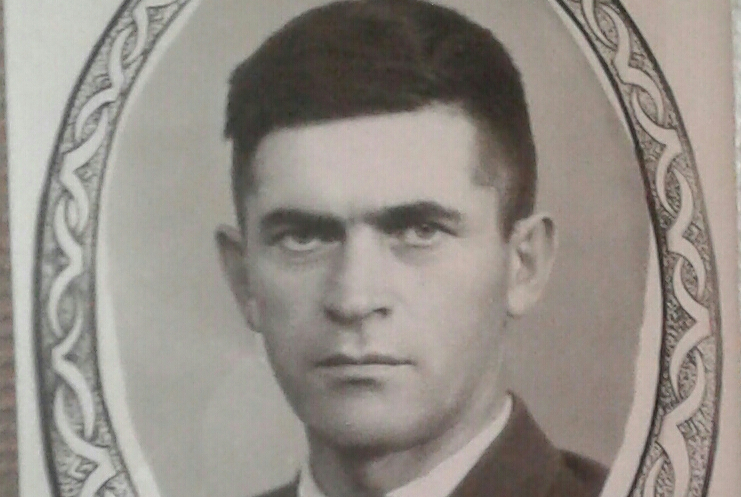
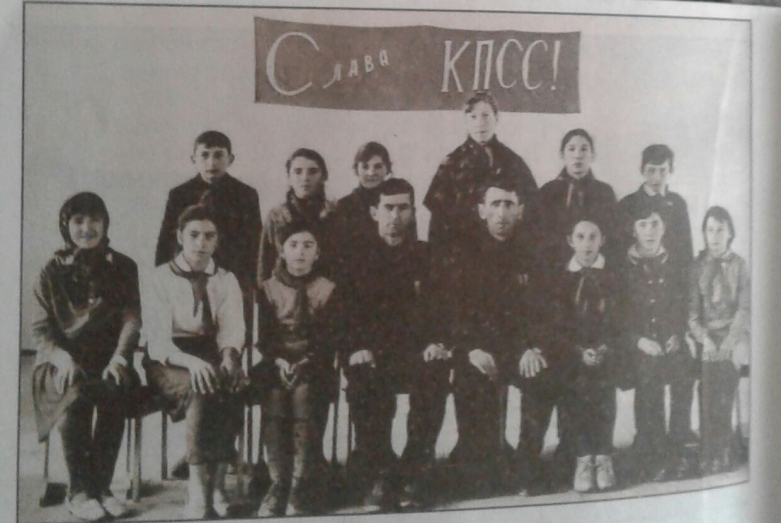
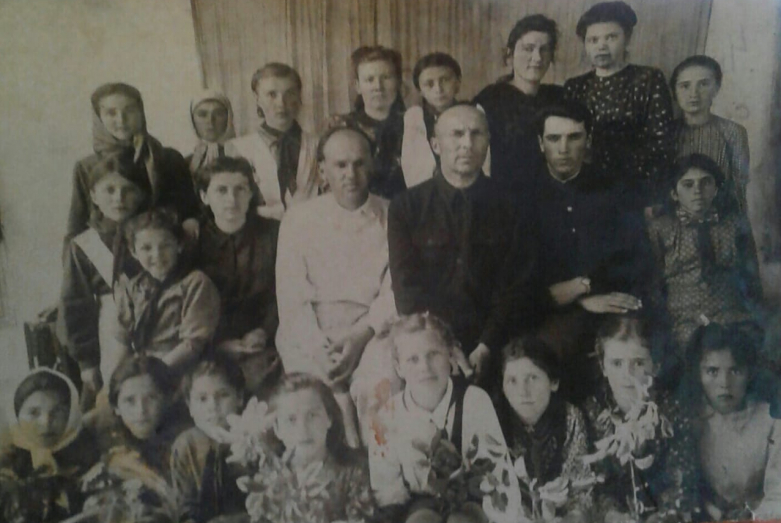
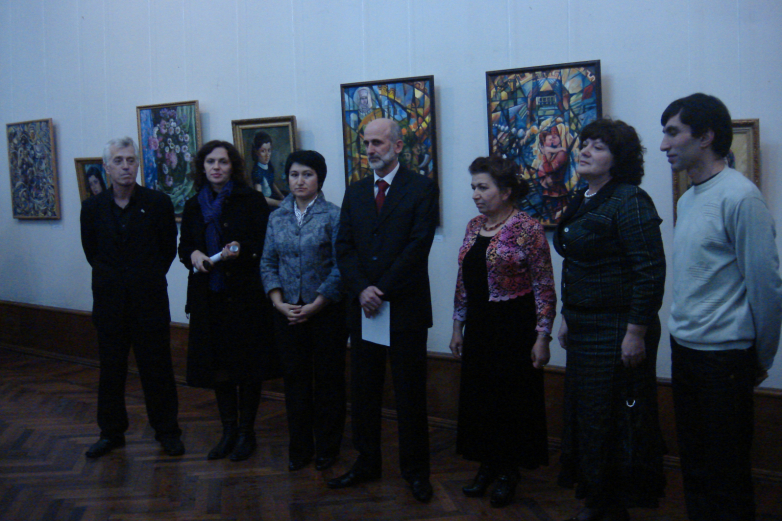
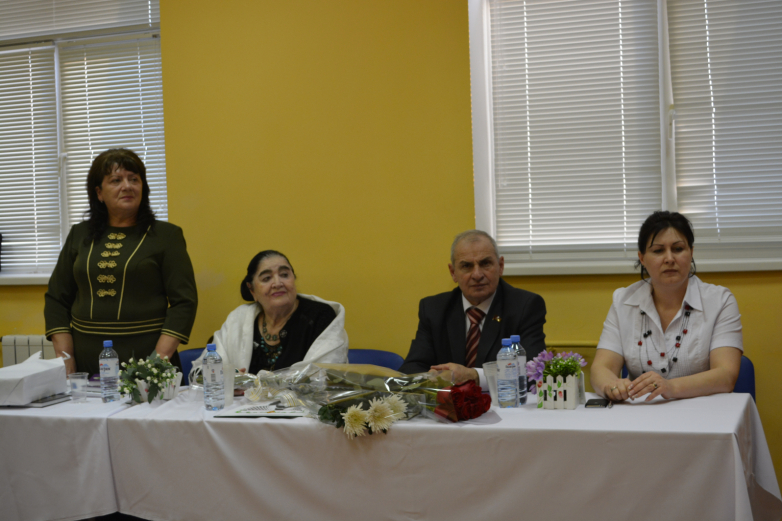
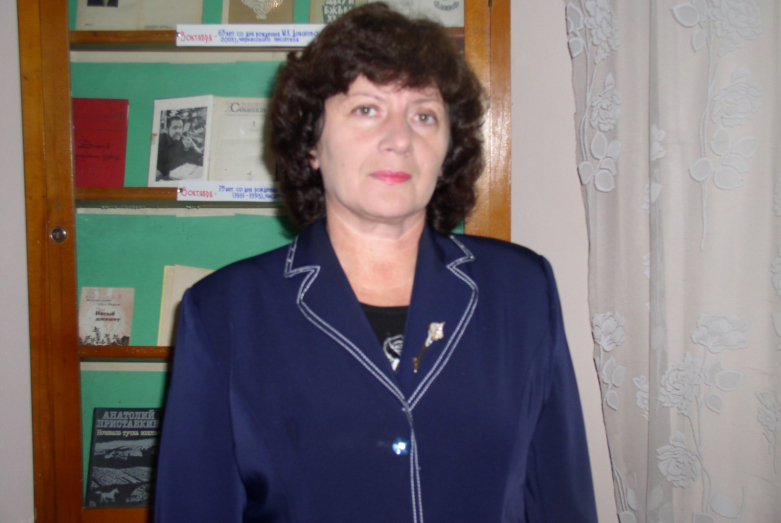
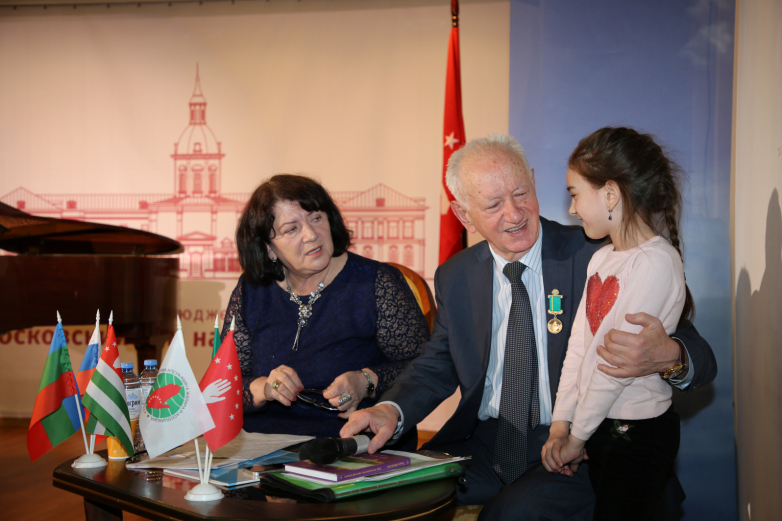
to login or register.